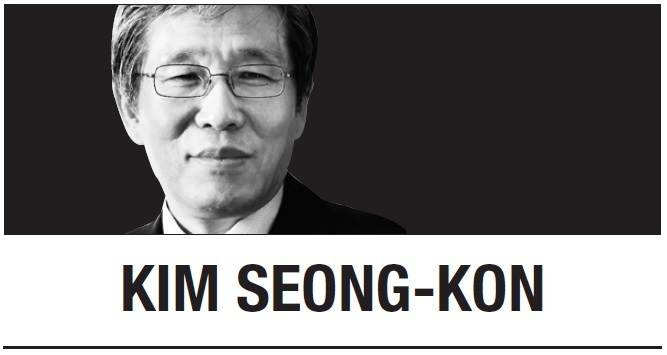
Bowls come in different sizes. There are big bowls and small bowls. When we Koreans say, “He is a big bowl,” it means he is magnanimous and has the capacity of a great man. When we say, “He is a small bowl,” it means he is impetuous and hotheaded. When we say, “He is not the bowl,” it means he does not fit the position he has.
Bowls come in different shapes, as well. The shape of a bowl determines the form of its contents. Bowls may be circular, rectangular, or pentagonal. Since the content cannot be free from the shape of a bowl, every bowl shapes its content differently.
Humans resemble bowls in many ways. Like a bowl, we are a container of something, such as our minds and souls. Like bowls, we are different sizes and various shapes. Like humans, bowls are quiet when alone, but they clatter and clank when they gather in the sink. Like bowls, we are different people depending on what we have inside of us. There are plain ceramic bowls and gaudy, big-name brand bowls. A fancy golden bowl does not always mean that it has fabulous things in it. Likewise, a good-looking face does not necessarily guarantee sound mind or a profound soul inside of the body.
In his poem, “A Bowl,” poet Oh Sae-young writes that, metaphorically, each of us is a bowl. He suggests that we can be a priceless bowl or a useless one, depending on what we have inside. In a translation by Brother Anthony, the poet writes: “Inside a bowl/ water becomes water at last/ It becomes an existence/ Do not spill it/ spilt water becomes fire/ and nameless desire/ Oh, the bowl!/ Thou, the form of human soul/ that governs our desire.”
Indeed, we all are a bowl in one way or another. We should be careful not to break the bowl under any circumstances, because a broken bowl becomes a blade that can hurt others. If you tread on the fragments of a broken bowl, your feet will be bruised. The poet writes: “A broken bowl/ becomes a blade/ I am barefoot now/ I am flesh/ waiting to be slashed/ A soul maturing since the wound is deep / A broken bowl/ becomes a blade/ Any broken thing/ becomes a blade.”
However, there are times when a bowl should break voluntarily. For example, when we are too obstinate and stubborn, obsessed with a particular political ideology, we might willingly break ourselves in order to return to soft clay to be remolded. Then, the bowl will have a new life. Otherwise, we will be broken by force, become a blade and hurt others.
According to the poet, a hard soap bar knows that it has to dissolve in order to soften and remove the stubborn dirt. Indeed, by caressing a hard surface softly and gently like a love potion, a soap bar can melt down accumulated dirt. Likewise, we, too, should dissolve ourselves in order to embrace others who are different from us.
When the bowl becomes a wine glass, it can contain aromatic wine in it. The poet imagines people drinking in a tavern and becomes meditative: “A glass empties itself/ to quench the thirst of others/ It is a space of contradiction/ A glass is filled in order to be emptied/ Thus, a glass never gets lonely/ because emptiness itself means fullness.”
A bowl can also be filled with our greed and avarice. We tend to compare our bowl to others’ luxurious ones and become jealous and spiteful. If we want to fill in our own bowl with other people’s wealth, we will only end up being miserable. If we pour too much water in a bowl, it overflows and spills. However, if we humbly leave our bowl empty, not desiring more than we deserve, we can have peace of mind and serenity. Likewise, we should not be arrogant simply because our bowls are bigger or fancier than other people’s bowls.
Our shoes and clothes, too, can be a bowl that contains our body and mind. Expensive shoes or clothes do to make us great or charming. Our nobility and integrity do.
Indeed, all of us are a unique bowl that contains different content. We can be a bowl of precious things that we share with others, or we can be a bowl of rubbish. Thus, we should ask a philosophical question to ourselves: “What kind of a bowl shall we be?”
Instead of a flashy, but cracked golden bowl, we should rather be a plain, but big bowl that can contain invaluable things.
Kim Seong-kon
Kim Seong-kon is a professor emeritus of English at Seoul National University and a visiting scholar at Dartmouth College. The views expressed here are his own. -- Ed.
-
Articles by Korea Herald









![[Kim Seong-kon] Democracy and the future of South Korea](http://res.heraldm.com/phpwas/restmb_idxmake.php?idx=644&simg=/content/image/2024/04/16/20240416050802_0.jpg&u=)








![[KH Explains] Hyundai's full hybrid edge to pay off amid slow transition to pure EVs](http://res.heraldm.com/phpwas/restmb_idxmake.php?idx=652&simg=/content/image/2024/04/18/20240418050645_0.jpg&u=20240418181020)

![[Today’s K-pop] Zico drops snippet of collaboration with Jennie](http://res.heraldm.com/phpwas/restmb_idxmake.php?idx=642&simg=/content/image/2024/04/18/20240418050702_0.jpg&u=)